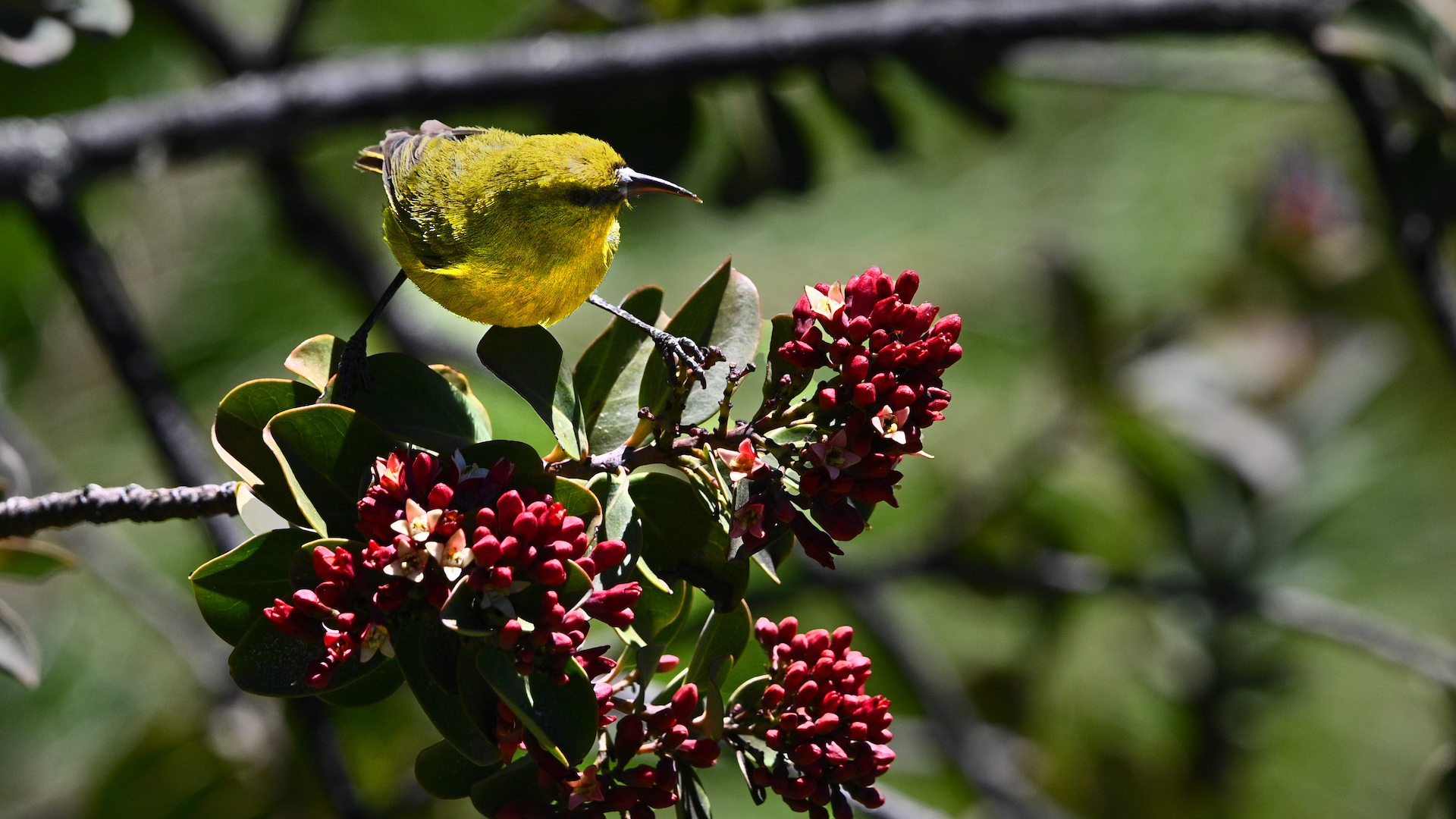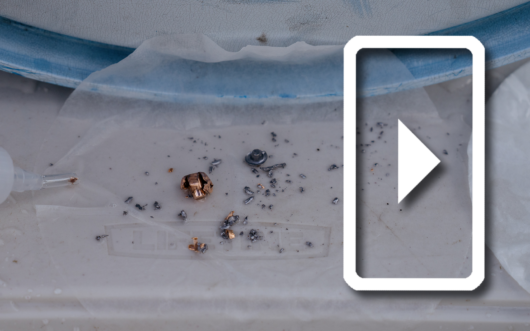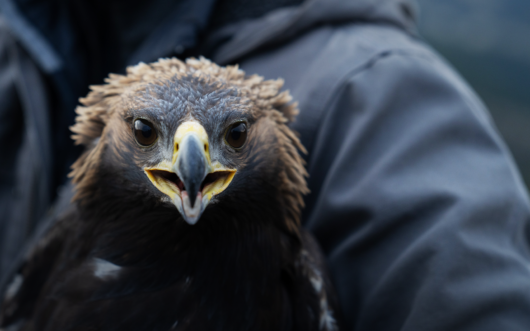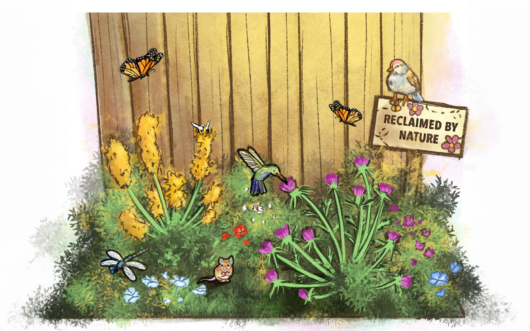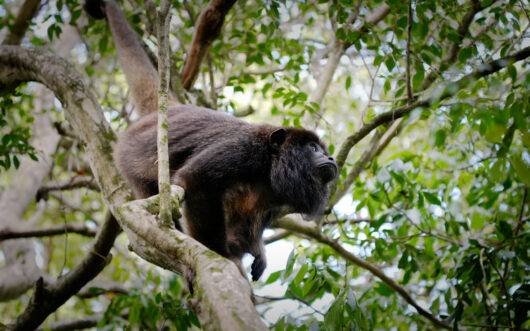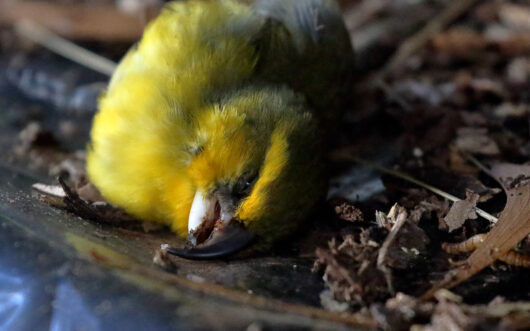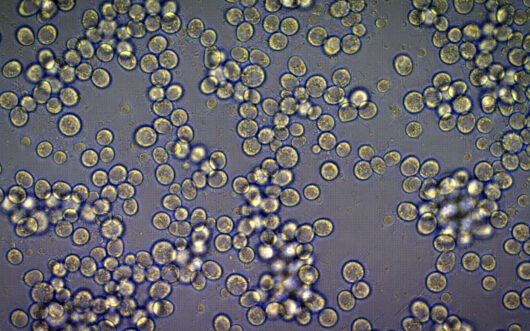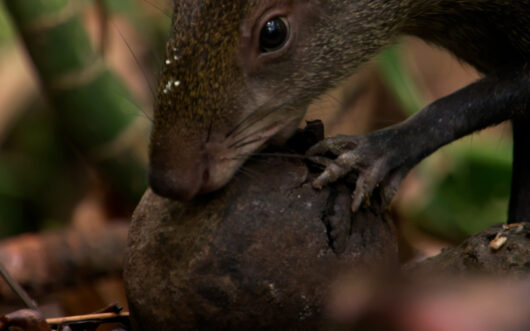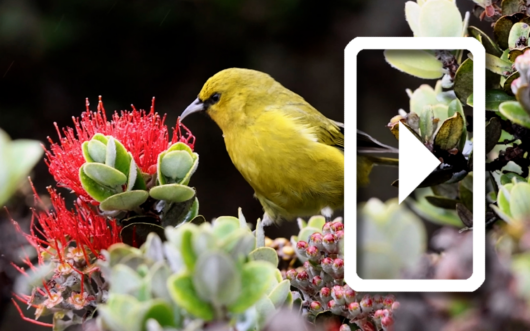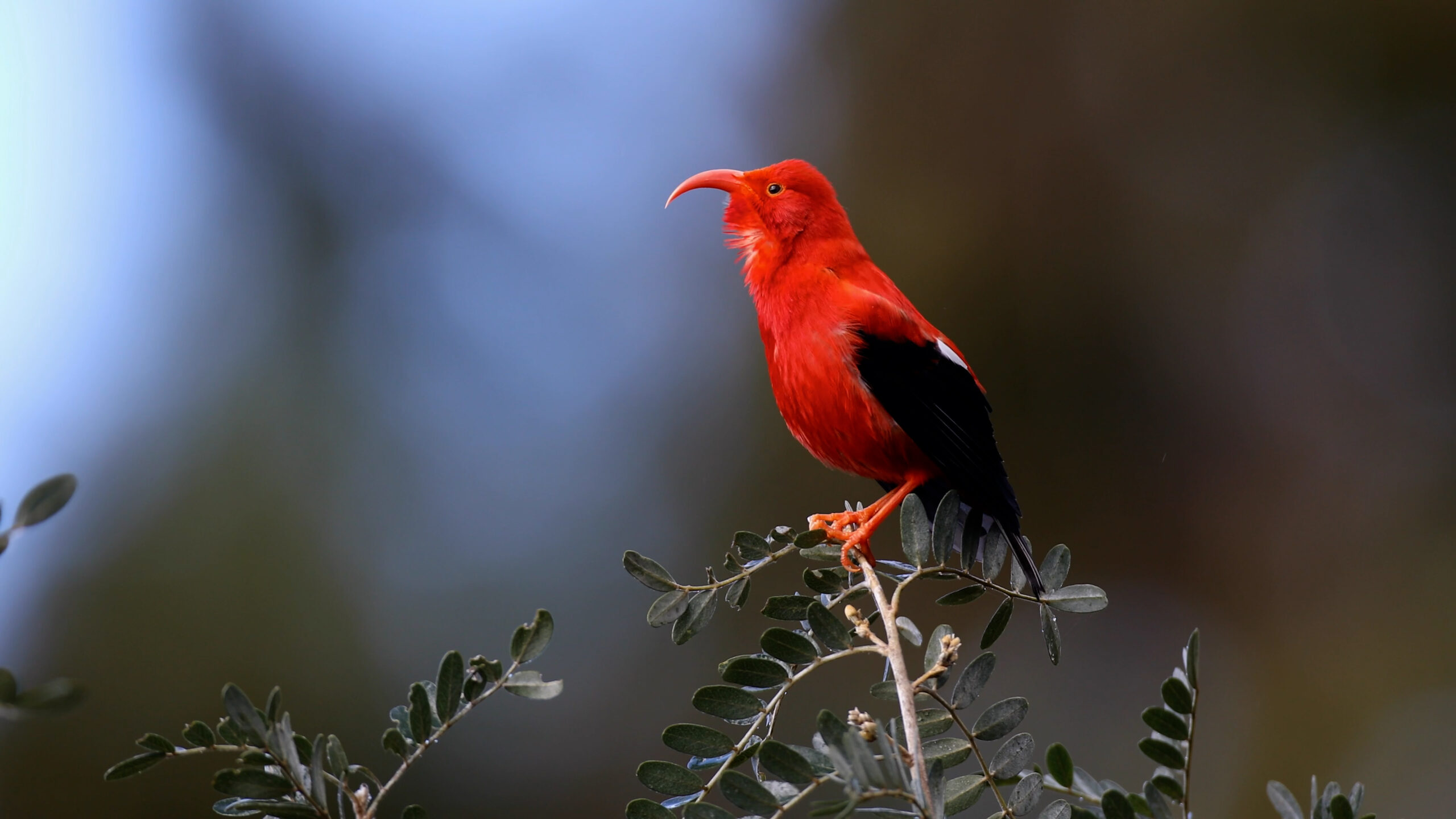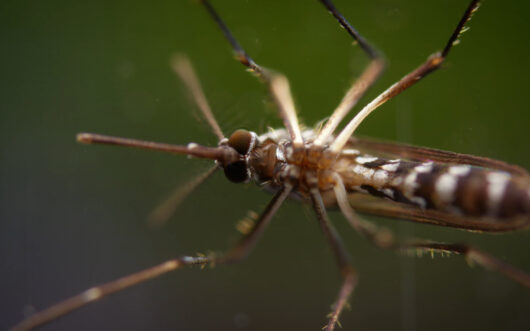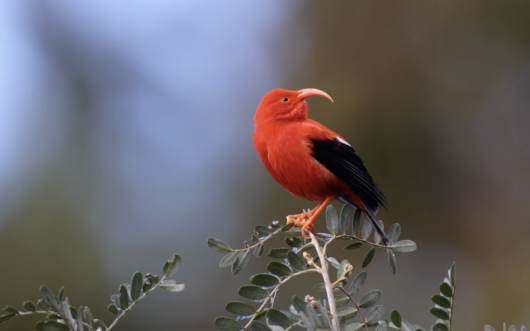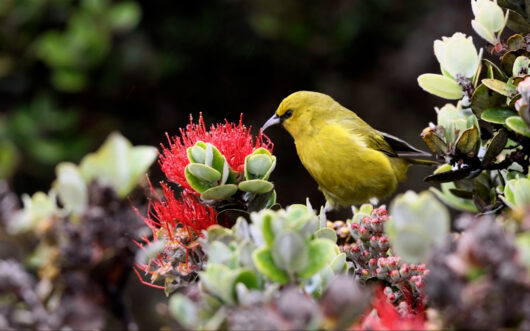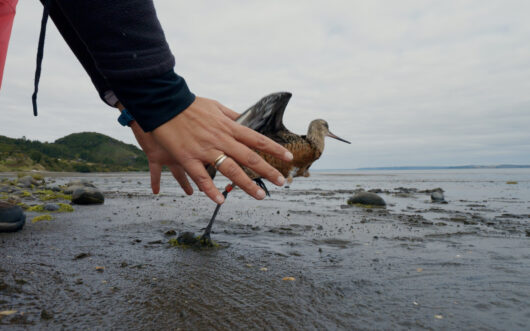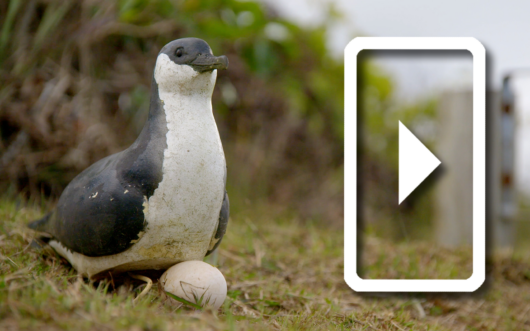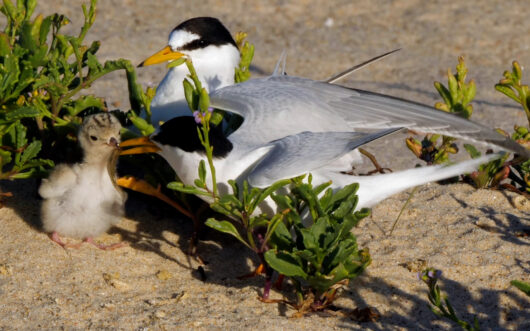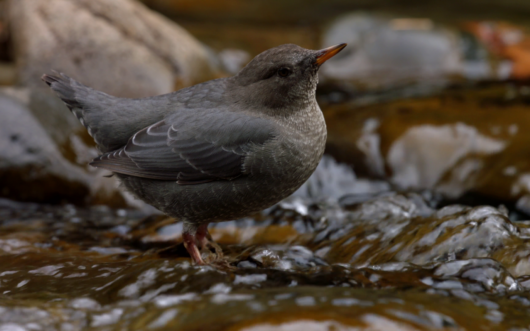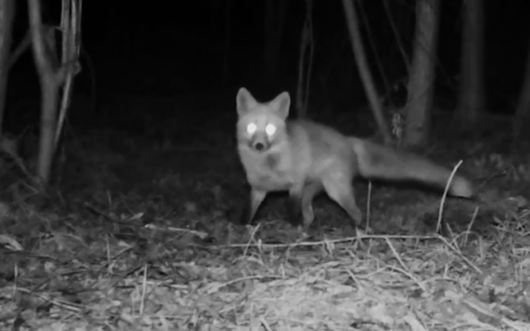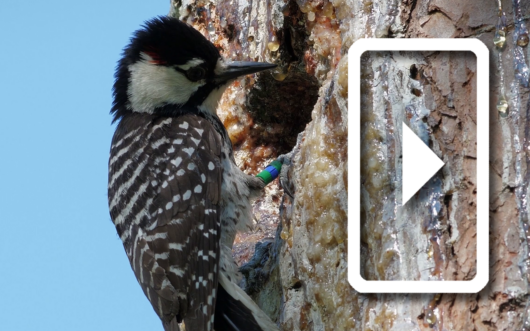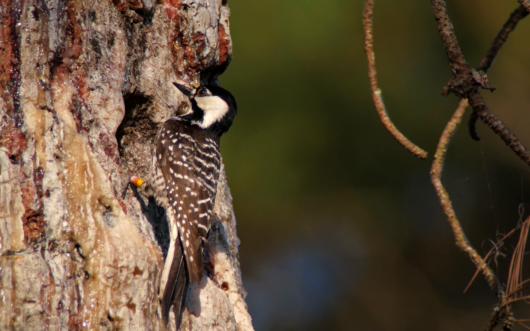Honeycreepers are a diverse group of birds found only in the forests of the Hawaii Islands, where they thrived for millions of years. But now, some species may disappear within the decade thanks to a growing threat: avian malaria.
Honeycreepers have had a rough time for the past couple of hundred years, with human settlers bringing habitat destruction and invasive predators like marauding mongooses. But their biggest threat yet is avian malaria, a disease carried by invasive mosquitoes. The disease, highly deadly to many of the island’s remaining 17 species of honeycreeper, is spreading fast as climate change warms high elevation forests that were once too cool for mosquitoes to flourish. It could cause at least four species to go extinct in the next 10 years.
To save them, conservationists are pinning their hopes on a type of mosquito birth control, reports Scientific American. The method, called the “incompatible insect technique,” introduces male mosquitos with a unique strain of gut bacteria into the local population; when mosquitoes with different strainstry to mate, they can’t reproduce.
Starting in November, researchers are planning to parachute millions of these mosquitos onto the island of Maui, where two of the most endangered honeycreeper species live. If their plan pays off—and the males are unable to reproduce with local females—they hope this will crash the mosquito population in time to save honeycreepers from extinction.
Golden eagles, bald eagles, and other North American raptors have made a remarkable comeback since the chemical pesticide DDT was banned in the United States in 1972. But they still face challenges to a full recovery. Learn more about golden eagles, and how you can support efforts to combat the threats they face.
Hannah was born and raised under the Big Sky in Montana and has enjoyed outdoor pursuits her whole life. With a bachelor’s in marketing and a master’s in resource conservation, she has a unique perspective on outreach efforts for the benefit of conservation.
For over 15 years, Bryan has been a leading scientist documenting the link between lead-based ammunition and ingestion in wildlife. He co-founded and is Director of Sporting Lead-Free to promote an unbiased, non-political message within our community about the benefits of using lead-free sporting options to preserve both our hunting heritage and amazing Wyoming wildlife.
Conservationist and hunter Bryan Bedrosian started Sporting Lead Free to offer a solution to the problem of lead poisoning in eagles: advocating for the use of non-lead bullets as a permanent substitute for traditional lead ammunition.
Nearly half of all golden eagles and bald eagles in the U.S. have elevated lead levels in their bodies. This lead poisoning comes from the bullets used by hunters — not because the bullets harm the eagles directly, but the birds do scavenge on “gut piles” laden with lead fragments left behind after successful hunts.
Hope for Hawaiian honeycreepers, beavers in London, a snake's triumphant return, and rewilding on college campuses.
Golden eagles are powerful enough to hunt prey as large as deer, but they’re falling victim to deadly lead poisoning introduced to the wild by another potent hunter: us. Across the nation, fragments from lead bullets in the entrails hunters leave behind are poisoning eagles and the other wildlife that scavenge them. But there’s a simple solution — copper bullets — that prevent the birds and even the hunters themselves from being exposed to the deadly metal.
With just a few changes, you can transform your yard or balcony from a wildlife desert into a wildlife sanctuary. And, if you convince your neighbors to do the same, you could even make your neighborhood into a habitat corridor for wildlife!
Wildlife corridors are an invaluable conservation tool. These ribbons of habitat connect landscapes fragmented by human development or roadways, giving animals the ability to roam in search of food, water, and mates.
When a disease is brought to a location where it wasn’t previously present, it is considered an introduced disease. Introduced diseases typically have a bigger impact on wildlife than native diseases, because exposed species haven’t had time to evolve natural defenses to fight off the novel pathogens.
Chytridiomycosis — often called chytrid or BD — is a highly infectious fungal disease linked to the widespread decline of more than 200 amphibian species around the world.
Plants can’t move on their own, so they usually need a little help to spread their seeds far and wide. Animals that scatter these seeds — often by eating the fruit and pooping out the remains — are known as seed dispersers.
Over 50 species of honeycreeper once lived in Hawai’i, but now only 17 species remain after battling against invasive species and habitat loss. Today, even those survivors are threatened further by avian malaria. To stop the disease, conservationists use innovative techniques to suppress the population of the invasive mosquitoes that spread it.
Millions of years ago, a single rosefinch species arrived on the Hawai’ian islands and evolved into over 50 species of honeycreepers — a phenomenon known as adaptive radiation.
Hawaiian honeycreepers are a group of songbirds endemic to the Hawaiian islands, all descended from a single species that arrived from the mainland six to seven million years ago. They are considered a dramatic example of adaptive radiation, a phenomenon in which a single species rapidly diversifies into many different ones. At one point, there were more than 50 different honeycreeper species on the islands, each sporting its own unique coloration, beak shape, and diets.
One of the major threats to Hawaiian honeycreepers is a deadly, mosquito-borne disease called avian malaria. Similar to malaria that infects humans, the disease is caused by parasites that enter honeycreepers’ bloodstreams when they are bitten by a disease-carrying mosquito.
Hawai’i is home to a broad, beautiful array of birds species found only on its islands—like the stunningly diverse honeycreepers, many on the border of extinction. Now, a local team is removing invasive predators, restoring habitats, and battling mosquito-borne diseases to protect honeycreepers from their latest threat: avian malaria.
Christa Seidl is a disease ecologist with over 10 years of experience leading research and conservation projects in Hawai'i, Aotearoa (New Zealand), Madagascar, Ecuador, and California with private, public, and industry partners.
Laura Bertholdis an Avian Research Field Supervisor at the Maui Forest Bird Recovery Project (MFBRP) assisting with planning and implementing research and management projects for native honeycreeper and forest recovery.
In addition to the impact of avian malaria, Hawai’i’s endangered honeycreepers are threatened by habitat loss and invasive predators — two problems that harm native bird populations everywhere, likely in your own back yard. Whether you’re looking to help Hawai’i’s birds, or if you’re hoping to make a difference to protect birds locally, the solutions […]
New tracking technologies are uncovering the flight paths of endangered shorebirds — and the obstacles they face along the way.
The endangered wedge-tailed shearwater — also known as the ‘ua‘u kani — was in critical danger after many nesting sites in Hawaii were overrun by predators like weasels, rags, or feral cats. Fortunately for the birds, locals banded together to protect nesting sites and the local population went from just 30 nesting birds to more than 3000!
A group in Maui has restored a safe haven for endangered seabirds to come home and nest: it’s completely fenced-off from predators and restored with native plants, but the birds still need some convincing! The team is using decoy “neighbors” and audio recordings of bird calls to make the seabirds feel at home — and at long last, the colony is growing!
All around the world, seabirds provide a critical link between land and sea. On Hawai’i, ecologists are working to protect two vital shearwater species that helped life first take hold on these islands.
Seabirds like those in Hawai'i have been given a second chance by the volunteers, scientists, and communities that lead the work to reverse their decline. While these birds — and the threats they face — may be unique to islands in the Pacific, the work to protect birds of a feather can be found anywhere around the globe.
Jay Penniman has worked as an independent contractor doing forestry, wildlife, and vegetation surveys, management, and assessment. Since 2006, he has worked for the Pacific Cooperative Studies Unit of the University of Hawaii managing the Maui Nui Seabird Recovery Project.
Jenni Learned is a broad-spectrum ecologist on the Maui Nui Seabird team with experience working across diverse environments.
A common conservation technique on islands is the creation of predator-free zones to exclude invasive species, from mice to feral pigs, from recovering habitats.
Some species at the center of conservation efforts — like seabirds — are inherently social animals. Scientists can take advantage of this affinity to woo them back to their old haunts — or to newer, safer nesting sites.
The bald eagle has been a national symbol of the United States since 1782 — but not that long ago, this iconic species was on the verge of a complete extinction.
The California condor is a North American wildlife icon — the continent's largest land birds and one of nature's most industrious scavengers — and also one of our most critically endangered avian species.
When an invasive algae in Crystal River wiped out the eel grass that manatees need for food, the community rallies to restore the river and save the animals that call it home.
Lisa Moore, a fourth-generation Floridian, is an entrepreneur and philanthropist dedicated to the efforts to preserve, protect, and restore environmental resources.
Derek Gow has turned his farm into a breeding center to help rewild all of Britain. He’s raising rare white storks, native harvest mice, water voles that can help restore wetlands throughout the country.
Pete Cooper is a wilding ecologist at the Derek Gow Consultancy, where he works on a variety of species reintroduction and rewilding projects. He leads a project trialing the captive breeding and reintroduction of glowworms, as well as working closely on reintroduction projects for other species including the harvest mouse, wildcat and turtle dove.
In 2021, an Oregon farmer decided to convert his 400-acre farm back to the wetland habitat. Now, just two year later, the new wetland supports migrating waterbirds and endangered fish.
The sex of baby sea turtles is determined by the warmth of their nest, so conservationists in Australia are protecting hatchlings on the mainland (where dark sand means warm temps and more females) from threats—and help ensure more future mammas make it to the sea.
Dogs are often thought of as humans’ best friends. But in Australia, they’re partnering with people to save other species from grave threats to the island continent’s unique fauna.
Stories of ecosystem recovery offer opportunities to celebrate the work of scientists, volunteers, and communities coming together to restore natural spaces. But sometimes, saving species calls for difficult choices.
Dr. Colin “Col” Limpus is chief scientist and a leading researcher for the Threatened Species Unit in the Queensland government’s Department of Environment and Heritage Protection.
Olivia Woosnam’s career began in 2005 as an international environmental officer at the United Nations Environment Program in Europe, working on international environmental policy and the Sustainable Development Goals.
Rob Geary is an experienced sea ranger with over 10 years of working in natural resource management and undertaking projects to protect and conserve threatened species and their habitats. He enjoys fieldwork and has extensive experience with feral animal management to protect marine turtle clutches and hatchlings from predation. He has undertaken numerous fauna surveys, […]
Tom Garrett is a senior project officer at Southern Queensland Landscapes, a community-owned organization dedicated to connecting and supporting communities to take care of their landscapes. He has experience in natural resource management dating back to 2009, and a substantial part of his role is working as the handler for Rocky and Cooper, two English […]
Scientists and volunteers are already making strides towards protecting native species and reducing the impact of invasive threats worldwide — and they need everyone to get on board with the movement.
A top threat to healthy, biodiverse ecosystems is the introduction of invasive species.
The red-cockaded woodpecker is only found in America's dwindling longleaf pine forests, where they create tree cavities that provide homes for other birds and small mammals.
People are setting fire to pine forests in North Carolina to help protect an endangered woodpecker, and many other creatures as well.
On an army base in North Carolina, soldiers and scientists have turned their conflict over an endangered species into collaboration—and conservation success.
One of the most inspiring conservation stories in American history is playing out on, of all places, a live-fire training ground at an Army base in North Carolina. There, the endangered red-cockaded woodpecker has been given a new lease on life.
